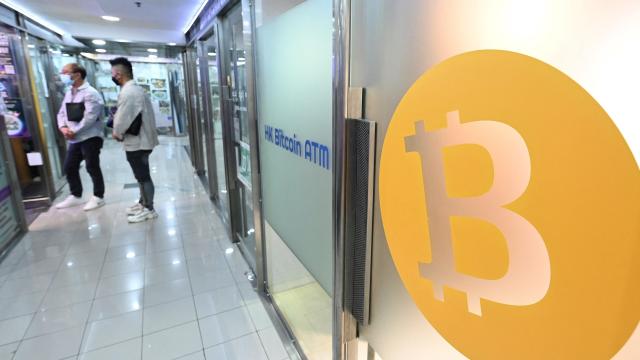Around three quarters of newfound bitcoin investors have lost money when putting their funds into the great crypto game, according to new research from one of the world’s leading central bank institutions.
A working paper from the Bank of International Settlements released Monday looked at the crypto world from 2015 to 2022 and found evidence to state what we were all already thinking, that most people, from 73 to 81% of new crypto investors, inevitably lost money on their initial investment. Most people who were buying into crypto came from Turkey, Singapore, the UK, and the U.S. during that time.
Economists noted that “risk-seeking” young men under 35 are the main segment of new bitcoin investors, according to the report. Even more interesting, those newfound crypto investors aren’t getting engaged in the idea of crypto because of any high-minded ideals of decentralized finance or breaking away from big banks, but because they’re hoping to make bank after being suckered in with promises of big returns for minimal effort.
If you’re a crypto critic, then this working paper might do nothing except confirm your own biases. However, the report did assume that a user purchased bitcoin when they downloaded a crypto app. The economists found that 73% of users downloaded their crypto app when the price of bitcoin was on the rise, going above $US20,000 ($27,764). If a user bought $US100 ($139) worth of bitcoin during the months that followed, then a median investor would have lost, for example, $US431 ($598), or 48% of their $US900 ($1,249) investment.
Still, the study is focused on two major events in recent crypto history that helps to inform its conclusions. The paper analysed the shock to the bitcoin ecosystem when the Chinese government started cracking down on crypto mining in 2021 as well as unrest in Kazakhstan, both of which caused shocks in the crypto market.
After China made crypto mining largely illegal, it forced miners to export their operations to other countries, and many moved on to neighbouring Kazakhstan with the promise of little regulation and cheap electricity. However, in January rising fuel prices and blackouts associated with the unending electricity demand from crypto miners led to violent and deadly riots. The government reportedly shut down internet services and took 15% of miners offline. Oh, but the real horror of those days events, at least for the bitcoin bulls, was it also sent bitcoin prices tumbling.
Miners eventually moved on to places like Texas, but after both China and Kazakhstan, the report noted that there were far fewer people looking to adopt bitcoin. The China event led to a 39% drop in bitcoin prices and a 30% reduction in new users. Kazakhstan sent prices down by 19%, and new users down by 15%. Researchers’ other studies of bitcoin prices narrowed the variables even more, making the correlation between prices and new users appear to hold the same trajectory.
And here’s the kicker, the people holding a lot of bitcoin, the so-called crypto “whales” or even the “humpbacks” tend to sell during periods of price increases. All those smaller investors flooding the markets are only fodder for the real bitcoin bulls to sell their stock “allowing early investors and insiders to cash out at their expense.”
As noted by Cointelegraph, The research is consistent with other reports by sites like Glassnode, which noted on Monday that the per cent of addresses making a profit has reached a two-year low.
📉 #Bitcoin $BTC Percent Addresses in Profit (7d MA) just reached a 2-year low of 51.881%
View metric:https://t.co/ik5IkrdoPk pic.twitter.com/boVDTqG8YL
— glassnode alerts (@glassnodealerts) November 14, 2022
Crypto exchanges have pushed the narrative that users need to get in fast because crypto is, somehow “the future.” This was especially the case back in 2021 when the price of crypto was rising rapidly. Big name actors pushed the “line go up” narrative such as The Crypto.com Superbowl ad with the tagline “fortune favours the brave” as just one example. Now more investors are trying to withdraw their funds from Crypto.com over concerns that its reserves are mostly made up of junk coins. FTX’s ad featuring Larry David making the case that you don’t want to “miss out” on the future that is decentralized finance worked to engender support, up until last week when the entire exchange blew up.
So what about all the talk about the need to break away from the power of big banks? Well, the economists at the Bank of International Settlements stated it pretty plainly.
“Users [are] being drawn to Bitcoin by rising prices — rather than a dislike for traditional banks, the search for a store of value or distrust in public institutions,” the researchers noted.
If most crypto investors were really concerned about decentralization over their hopes of making line go up, there would be an even greater pushback about Ethereum moving from less centralised proof-of-work to completely centralised proof-of-stake. As David Gerard, author of Attack of the 15.24 m Blockchain, put it in a recent blog, “Decentralization is always fake.”
